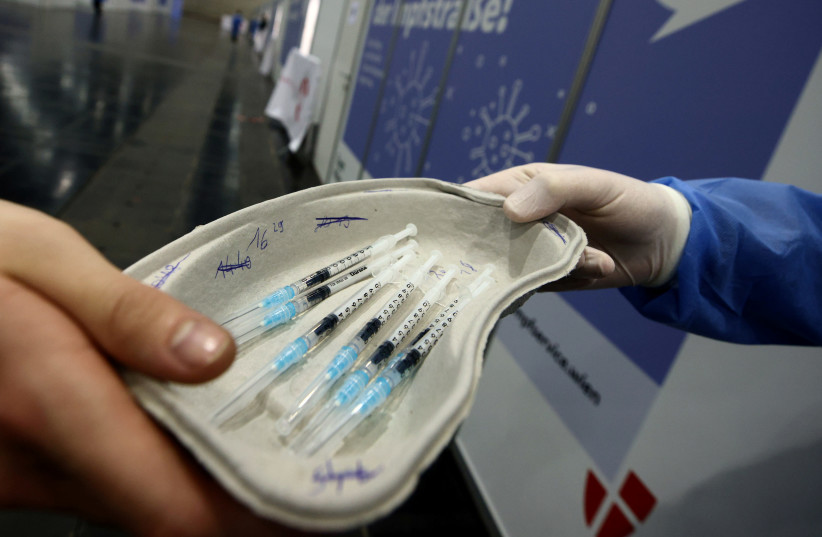Individuals double vaccinated against COVID-19 within the last six months can't receive a booster and still need to wait to get their third jab, the Pandemic Response Team and the Advisory Committee on Vaccines said late Sunday night.
The committee met for several hours to discuss the issue, as 67 cases of Omicron were discovered in Israel and dozens more are under investigation,
The discussion came as new research is showing that two shots of the Pfizer vaccines are less effective against the variant and that three shots could provide greater protection against infection.
The committees also evaluated whether or not to give the fourth shot to people who are immunocompromised, elderly or at high risk for developing severe COVID-19, but decided against this as well.
However, the health officials did rule that the period of time between recovery and vaccination could be shortened from six months to three months.

A United Kingdom study released over the weekend showed that there was up to an eight-fold increase in the risk of reinfection with the Omicron variant.
In general, the variant has been found to be at least four times more infectious than its Delta predecessor.
Israel was the first country to administer third shots of the COVID vaccine, even before the United States Food and Drug Administration approved the shots. However, researchers have said there is still no conclusive data as to how long antibodies will remain strong after the third shot.
Prime Minister Naftali Bennett and Health Minister Nitzan Horowitz have been pushing to increase the country's vaccination campaign instead, meaning pushing to inoculate the one million Israelis who received two doses more than five months ago and have still not gotten a booster. There is also a push for childhood vaccination, which has been moving slower than expected despite the fear of the Omicron variant.
